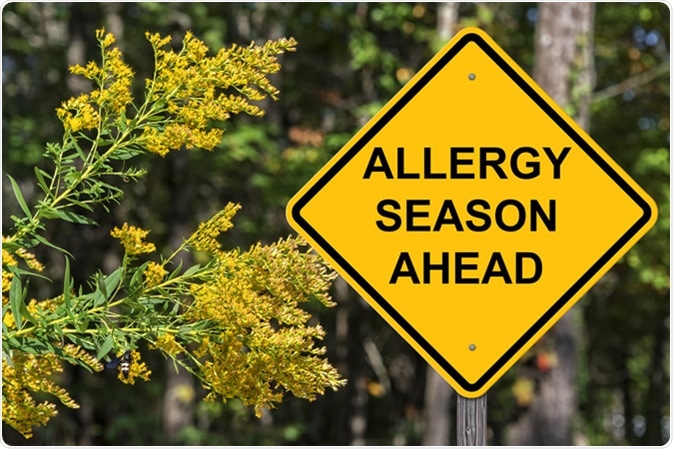Autism spectrum disorder (ASD) is an umbrella term for developmental conditions that affect communication, behaviour and social interaction. Typically, symptoms start to be seen in young children (before 3 years) and persist throughout life. Affected individuals tend to have an altered perception of the world and have key social differences that cause issues with understanding and relating to other people. As ASD is a spectrum, the severity of symptoms or traits can vary tremendously, with some having intellectual disabilities, whereas others are high functioning and may have above normal intelligence (known as Asperger’s).
The exact causes of ASD are still poorly understood, though an atypical brain development is thought to be the cause of many of the symptoms. There is evidence that ASD can run in families and may have a genetic basis in some cases. Other causes are thought to be attributed to the mother’s health during pregnancy e.g. infection, toxic metal poisoning, teratogen/alcohol exposure and usage of SSRIs during pregnancy.
What are Allergies?
An allergy is an adverse reaction of the body’s immune system to certain substances (allergens), which can be certain types of food (see Food Allergies Explained), dust, latex, mould, pollen and animal dander. Allergies are mediated by immunoglobulins in the body, notably IgE, though other immunoglobulins can also be involved.
Allergies are common, affecting around a quarter of people in the UK at some point in their lives. Children tend to suffer from more allergies, though they can grow out of them as they age. However, other allergies can be acquired later in life to things that were not previously a cause of allergy.

Image Credit: Jim Vallee / Shutterstock
The key symptoms of an allergic reaction (the body’s response to an allergen) can include the development of a rash, sneezing, runny or blocked nose, wheezing and exacerbation of asthma or eczema. These are usually mild and disappear once the allergen is removed, however, in extreme cases, a more severe reaction known as an anaphylactic shock can occur, which is a medical emergency if not treated urgently.
Allergies can usually be managed by the usage of over the counter medications such as sprays, drops, creams and inhalers. Anti-histamines can minimize the severity of symptoms.
It is important to note the differences between an allergy, sensitivity and intolerances. A sensitivity is an enhanced exaggerative effect of an ordinary substance such as coffee, which can lead to palpitations, for example. An intolerance is where large amounts of a substance, such as milk (lactose intolerance), can lead to diarrhoea or vomiting, but not activate the immune system.
Allergies in People with ASD
Several studies have found a abnormal immune function in individuals with ASD. This is manifested with an increased frequency of recurrent infections and autoimmunity in children with ASD. This is supported by large cohort studies, which have found increased levels of IgE and IgG in children with ASD. Although allergies are common in children, the immune dysfunction seen in some children with ASD may predispose affected children to higher rates of allergies compared to non-ASD children.
A recent study by Guifeng and colleagues (published in JAMA Network in 2018); found a significant positive correlation between allergies and ASD in children. Children with ASD were twice as likely to have a food allergy as children without ASD. This study is purely observational, and causality cannot be determined, though the strong association between ASD and allergy in 200,000 children does provide strong evidence to suggest the two are strongly related.
As to whether ASD causes allergy (specifically food allergy), or whether allergies cause ASD, or whether both conditions are related to some third factor, is debatable. Some studies have shown that gastrointestinal complaints are higher amongst children with ASD compared to those without. It is therefore speculated that food allergy development may be attributed to gut microbiome alterations and immune activation as a result, which impairs brain development and function through the gut-brain axis (enteric nervous system).
In summary, the rates of allergies; especially food allergies, are much higher in children and individuals with ASD compared to those who do not have ASD. Some hypothesize that an impaired immune system, coupled with alterations in the gut, may affect brain development as well as allergy development. More research is needed to better describe the association between allergies and ASD.
Sources:
- NHS.uk, 2019. What is autism? https://www.nhs.uk/conditions/autism/what-is-autism/
- NHS.uk, 2019. Allergies. https://www.nhs.uk/conditions/allergies/
- Guifeng et al, 2018. Association of Food Allergy and Other Allergic Conditions With Autism Spectrum Disorder in Children. JAMA Netw Open. 1(2):e180279. https://www.ncbi.nlm.nih.gov/pmc/articles/PMC6324407/
Further Reading
Last Updated: Jul 30, 2019